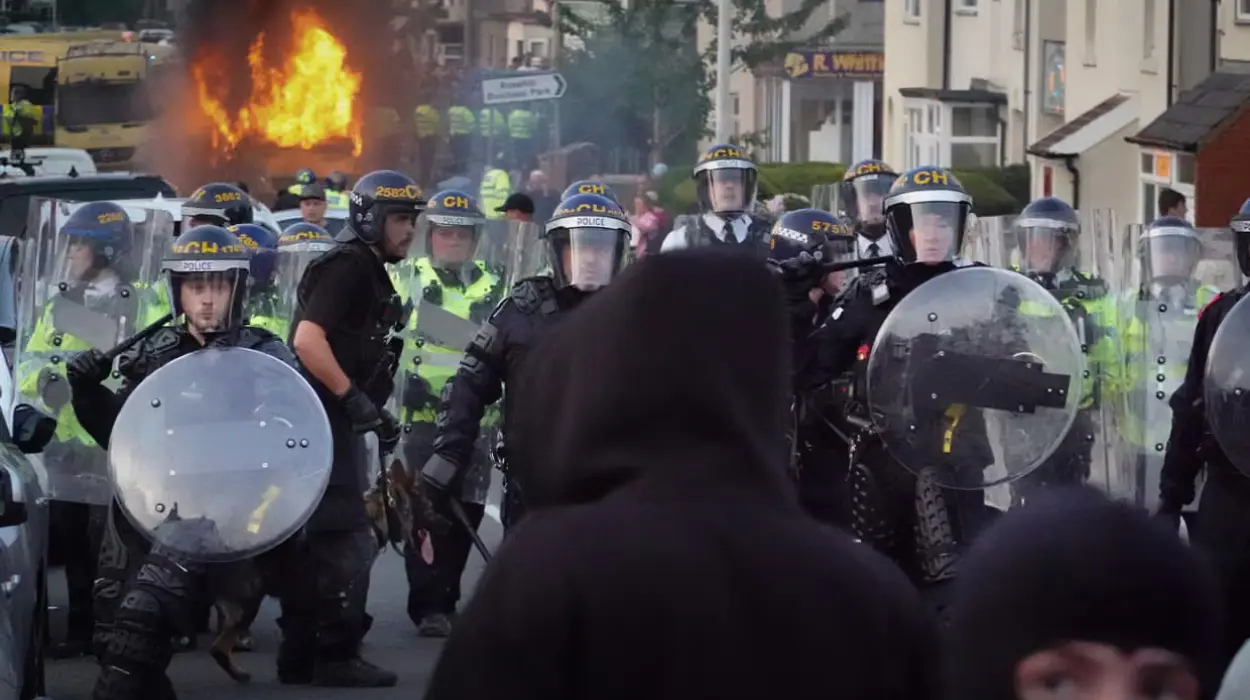UK (Parliament Politics Magazine) – Policing minister Diana Johnson says sharing suspects’ ethnicity and nationality won’t stop all disinformation, with key details usually released at charge.
As reported by The Guardian, Diana Johnson said revealing suspects’ ethnicity and nationality won’t stop all disinformation incidents.
What did Diana Johnson say about suspect detail and disinformation?
During a BBC interview, Policing Minister Diana Johnson said delaying suspects’ nationality and ethnicity until charge could still let disinformation spread, as happened after Axel Rudakubana’s murders.
She said,
“(Disinformation) is a bigger problem for society, I think, but in terms of particular individuals, what normally happens is that charged information is released. That’s what’s happened before.”
Ms Johnson stated,
“We were very supportive of being as open and as transparent as possible, and this interim guidance will set out that on charge, usually name and addresses are given. We also, in most cases, will want to see nationality or ethnicity given as well. This goes back to last year and what happened, that appalling atrocity in Southport.”
The minister confirmed the Law Commission will review rules to protect the fairness of upcoming trials.
When asked about revealing suspects’ asylum status in new guidance, Ms Johnson responded,
“To date, it’s not something that the Home Office comment on in terms of asylum applications that are made by individuals.”
The policing minister vowed facial recognition will be used responsibly, dismissing fears of total surveillance.
She said,
“With the greatest of respect, that’s not what this is about. This is about giving the tools to our police officers to enable them to keep us safe. And the live facial recognition results in London, where it’s been used, in the past 12 months, over 580 arrests were made, and these included people who were wanted for rape, for GBH (grievous bodily harm), for robbery, for domestic abuse, and also for sex offenders who were breaching their conditions of being out in the community.”
Ms Johnson added,
“And it’s actually a tool, it’s not an automated decision maker. So, the police officer has to look at what’s being put up on the screen and decide what to do next, so there’s that human involvement, but it is a really powerful tool, which I think the public would actually be supportive of being used in a very measured, proportionate way to go after those individuals that the police are looking for for these serious offences.”
What new guidance says about revealing suspects’ ethnicity and nationality?
Authorities urged forces to disclose suspects’ backgrounds after asylum offence cover-up claims.
The National Police Chiefs’ Council and College of Policing issued interim guidance urging police to share extra information about suspects in high-profile cases.
The guidance states the Home Office will decide if confirming a suspect’s immigration status is “appropriate in all circumstances.”
What did Sam de Reya say about Police info and disinformation?
Deputy Chief Constable Sam de Reya, NPCC’s ethics lead, stated,
“We saw during last summer’s disorder, as well as in several recent high-profile cases, what the major, real-world consequences can be from what information police release into the public domain.”
She said,
“We have to make sure our processes are fit for purpose in an age of social media speculation and where information can travel incredibly quickly across a wide range of channels.”
Ms Reya added,
“Disinformation and incorrect narratives can take hold in a vacuum. It is good police work for us to fill this vacuum with the facts about issues of wider public interest.”
Emily Spurrell’s views on the police guidance update
Emily Spurrell, of the Association of Police and Crime Commissioners, stated,
“I am pleased the NPCC and College of Policing have recognised the need to update guidance for forces in the light of recent high-profile cases.”
She said,
“(Police and crime commissioners) and deputy mayors act on behalf of the public, and it is clear there was a need to review the guidance to address growing public concern.”
Ms Spurrell added,
“We have seen the speed with which mis- or disinformation can spread online and the danger to public safety that it can cause, so it is right that police keep the public informed as far as is possible whilst preserving a suspect’s right to a fair trial.”
What led to new police guidance on suspect information?
The new guidance comes after two men in Warwickshire were charged over the alleged rape of a 12-year-old girl last month.
Earlier this month, 23-year-old Ahmad Mulakhil was charged with rape. Mohammad Kabir, also 23, was accused of kidnapping and strangulation.
The new police guidance also aims to tackle misinformation, which spread after the Southport killings and contributed to riots.


